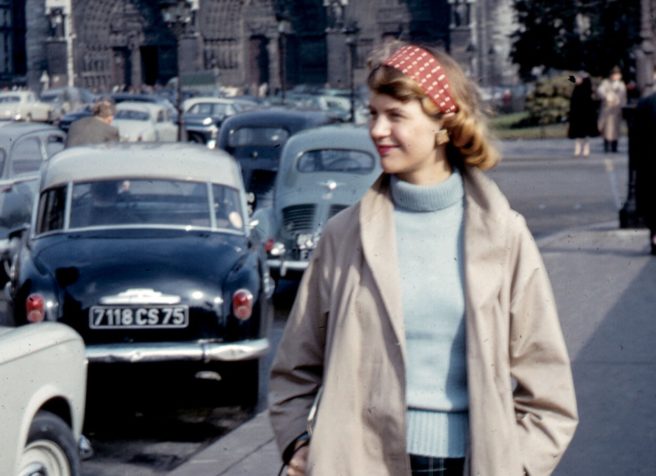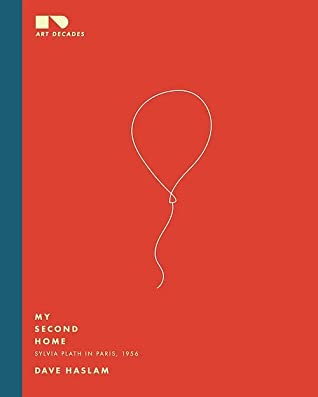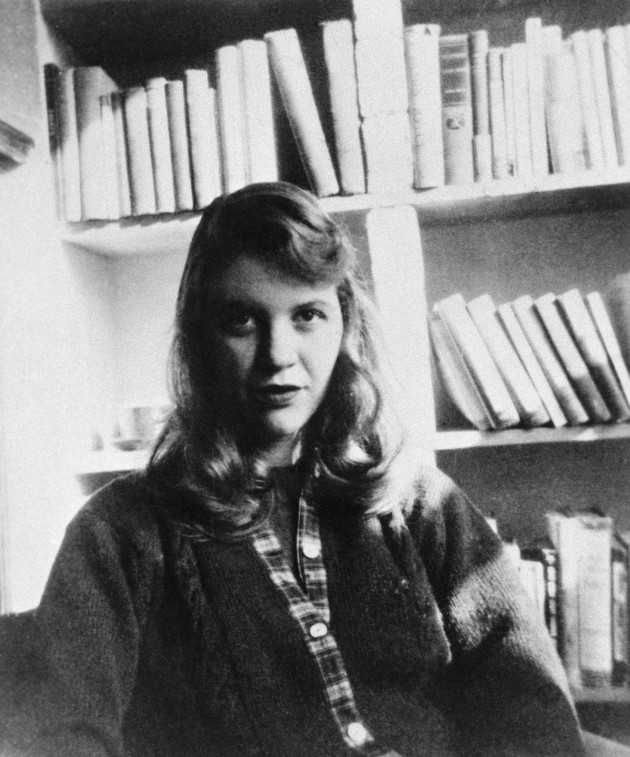
New pocket-biography of Sylvia Plath’s time in Paris hits shelves
That’s it though. Fate, decisions, a conversation with a stranger, a moment of irresponsibility, someone hearing your faint cry. And opportunities, choices, decisions, Richard, Ted…Questions are falling like rain on Paris rooftops.’
Small, unassuming, delicate. Not Plath, but the package she comes in, in David Haslam’s newest fifty-seven-page cultural biography of the tortured and talented woman. A vignette of a strange and intimate turning point in the young poet’s life, it chronicles the decisions made in this snapshot moment that make her who she is, incites some of her best art and most deliriously happy moments. But had she known the cost of those fruitful years, would the decisions have been the same?

Sylvia Plath is in Paris and the year is 1956. She arrived – alone – and booked herself into an attic room in a hotel near Notre Dame, looking out over Paris’ windows and rooftops. She was here not three months ago, with Richard Sassoon for Christmas, thinking she had met the love of her life. The day before she left on this second trip, she had met Ted Hughes.
They would be married ten weeks later.
Chasing a man and a future that Richard no longer considers them to have, Sylvia wanders Paris, a city that had held her heart longer than any man had. Stifled and stifling, she gives herself over to the city as a place to ‘uncage’ herself, leaning into the intensity and oddities that she would come to fear later on in her life. But somehow, in Paris, those parts of her make sense.
David Haslam pinpoints a moment in Sylvia’s life that is tumultuous and intense and draws a portrait of her personal relationships with herself, the city and her love life that teeters on the edge of fate. As her letters to Richard remain unanswered, Plath loses herself in the city, always longing, always seeking, not a man, but the strange and impossible perfection that will haunt her the rest of her life. It is a period in which the choices she makes will come to define her, but watching Plath, on the cusp of making these decisions, is poignant and painful. Her demons are yet to get the better of her, Ted Hughes is yet to permanently cast his strange spell on her but she is also yet to produce some of her most incredible and daring work, because those things have not yet happened.
We see her as she is just about to fall in thrall of Ted and their first night together, an intense and wild relationship that is already harmful in its dark obsession, leaving her with bruises and marks. But there is a sense of inevitability about the whole thing, that the darkness in both of them calls out to one another, even across the sea, even as she begins to let go of Richard, Ted already beginning to consume her. Even if she does not quite realise it in that moment, that desire for ‘things that will destroy me in the end’ will never really go away.

And while this is a time of the cusp of long reaching and irreparable change, she is so content perusing the Left Bank book stalls, sitting in the sun on Pont Neuf and sketching Saint-Germaine, that you wonder how it all goes so wrong. Even then, she sees the danger that lies within herself, that persistent melancholy that dogs her steps across the bridges of the Seine, the deep-rooted hedonism that cannot be indulged for too long, or it takes control. She constantly fights it, writing a list of commandments to follow, including being more disciplined with her writing, being more ‘chaste and subdued’, to be a ‘good girl’.
‘Paris seems to have been a time of self-discovery, and a chance for Plath to shape a new life. It was appropriate that she was there at Easter, a time of death, resurrection, renewed hope.’ And yet in so many ways it was the beginning of the end. But this book is about her life, not her death
This little chapbook is a pocket-biography version of her life, refusing to fall into the trap that many of her biographers do, that is writing with the shadow of her death hanging over her life. Instead, here for a brief fifty-seven-pages, she vitally alive and at war with herself. Haslam explores the independence she finds in the streets of Paris, the loneliness she discarded there like an old, worn coat, the happiness and inspiration that the city had for her. He finished with her spirit wandering Paris still;
‘A brasserie on Boulevard Raspail, a surrealist film in Montparnasse. Hearing the Easter bells, crossing the river, the Seine flowing beneath her feet, the wide Paris sky arching towards all the horizons. She has as much right to those moments of happiness as any of us, perhaps more; her sketchbook in her hand, making her way to the park, in the sun, in her Paris.’
Dave Haslam is a broadcaster, DJ and author. He has written five books including Manchester, England – a cultural biography of Manchester which was declared one of the ten books that best represent Britain. His other books include ‘Life After Dark: A History of British Nightclubs & Music Venues’, and his autobiography ‘Sonic Youth Slept On My Floor’.
Purchase this book here
Main feature image: New York Times





